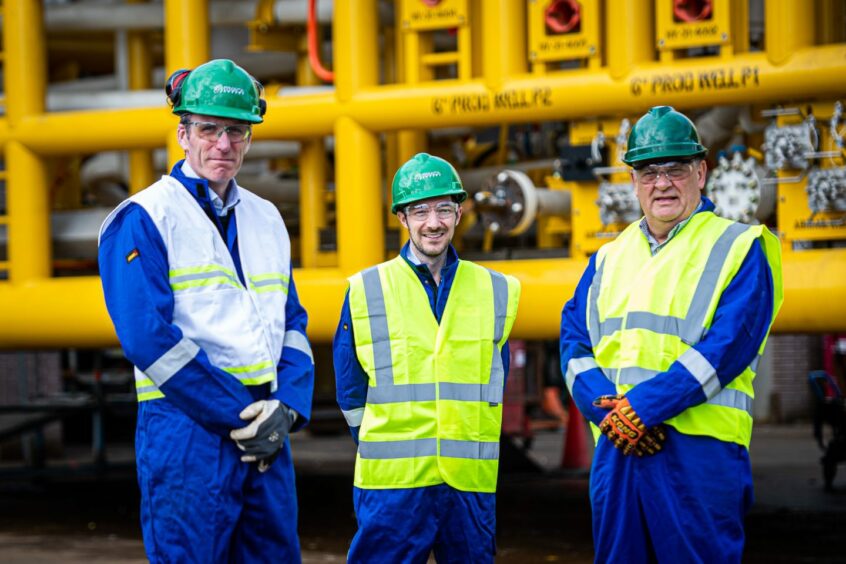
Ithaca Energy reported net income of $238.5 million (£190m) for the nine months ending 30 September, as farm-out discussions continue on key North Sea projects.
Net cash flow from operations reached just over $1 billion (£800m) over the same period, much of which has been used to lower net debt through the year, which has now fallen to $677m (£540m).
Ithaca (LON:ITH) says it now holds stakes in six of the ten largest fields in the UK North Sea and two of its largest pre-development fields, and intends to invest across the portfolio as part of its so-called “buy, build and boost” strategy.
The most recent quarter also saw the company reach major milestones on key projects, with a final investment decision (FID) taken by partner Equinor on the Rosebank field.
Further deals saw the group become the 100% owner of the Cambo field following the exit of Shell and the acquisition of a remaining 40% stake in the Fotla discovery from Spirit Energy, which completed this month.
Ithaca reaffirmed today that “all major contracts” had been awarded for Rosebank, enabling subsea work to begin next year ahead of start up in 2026-27.
The operator said it is now waiting for completion of the deal to take full control of Cambo’s FID timeline and work programme and is “actively engaging” with potential farm-in partners to ensure both it and Fotla can be taken to FID.
Drilling is ongoing at the K2 prospect following a decision to proceed with further appraisal, and work also continues at Leverett.
At Marigold, the group confirmed a unitisation and unit operating agreement had now been executed with work progressing towards submission of the Field Development Plan in 2024.
In September the licence partners confirmed that an integrated project team led by Anasuria Hibiscus and including Ithaca secondees was already working on the plan for submission by “early calendar year 2024”.
Ithaca’s executive chairman Gilad Myerson commented: “I am delighted that we have once again reported a quarter of strong strategic progress and continued financial delivery. The decision to progress with Phase I of the Rosebank development alongside Equinor represents a significant milestone for Ithaca as we continue to deliver against our BUY, BUILD and BOOST strategy.
“We continue to constructively engage with UK government to help shape future energy policy to create a supportive environment for further investment in the UK North Sea and welcome the recent announcement on annual North Sea licensing rounds.”
At its Captain field, Ithaca said Phase II of its ongoing enhanced oil recovery project was now around 80% complete, with first polymer injection due into the subsea wells in 2024.
Drilling operations at Area E polymer injection wells, the laying of new flowlines and umbilicals and facilities upgrades have all been completed at this stage.
It is also progressing an electrification FEED study for the field.
Ithaca reported Q3 production of 61,700 barrels of oil equivalent per day (boepd) as turnaround work impacted output, but said year to date production of 71,000 boepd would see it deliver on FY guidance of 68 – 74,000. Of this, production is split 66% liquids and 34% gas.
It expects full production to be resumed in Q4 following completion of turnaround activities, but noted that the Pierce field remains offline for essential repairs after issues with the mooring system on the Haewene Brim FPSO.
A timeline for a fix is “highly dependent on weather”, it said, but is expected during the first half of 2024.
Year-to-date dividend payments have so far reached $266m, with the company reaffirming its target to offer total dividends of $400 million for full-year 2023.
Chief executive officer Alan Bruce commented: “We continue to focus on maximising value from our portfolio, with targeted investment in high quality assets such as Captain and Rosebank. We are pleased to reaffirm today our previously stated production, capex and dividend guidance for Full Year 2023, while our strong cost control has allowed us to lower our opex guidance.
“Ithaca is in a strong financial position and our long-life assets provide the basis for consistent execution of our value proposition – growing free cash flow, reducing emissions intensity and returning capital to shareholders.”
